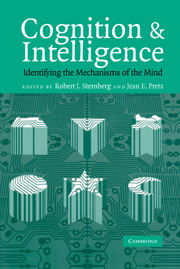Cognitive Load Theory
Cognitive load theory (CLT) is one of the most important theories in educational psychology, a highly effective guide for the design of multimedia and other learning materials. This edited volume brings together the most prolific researchers from around the world who study various aspects of cognitive load to discuss its current theoretical as well as practical issues. The book is divided into three parts. The first part describes the theoretical foundations and assumptions of CLT, the second discusses the empirical findings about the application of CLT to the design of learning environments, and the third part concludes the book with discussions and suggestions for new directions for future research. It aims to become the standard handbook in CLT for researchers and graduate students in psychology, education, and educational technology.
- Comprehensive review of all issues related to cognitive load theory
- Written by the most prolific researchers from around the world
- Describes the theoretical foundation, empirical evidence, and directions for future developments of this theory
Product details
June 2010Paperback
9780521677585
286 pages
229 × 152 × 15 mm
0.39kg
13 b/w illus. 20 tables
Available
Table of Contents
- Introduction Jan L. Plass, Roxana Moreno and Roland Brünken
- Part I. Theory:
- 1. Cognitive load theory: historical development and relation to other theories Roxana Moreno and Babette Park
- 2. Cognitive load theory: recent theoretical advances John Sweller
- 3. Schema acquisition and sources of cognitive load Slava Kalyuga
- 4. Individual differences and cognitive load theory Jan L. Plass and Slava Kalyuga
- Part II. Empirical Evidence:
- 5. Learning from worked-out examples and problem solving Alexander Renkl and Robert K. Atkinson
- 6. Instructional control of cognitive load in the design of complex learning environments Liesbeth Kester, Fred Paas and Jeroen J. G. van Merriënboer
- 7. Techniques that reduce extraneous cognitive load and manage intrinsic cognitive load during multimedia learning Richard E. Mayer and Roxana Moreno
- 8. Techniques that increase generative processing in multimedia learning: open questions for cognitive-load research Roxana Moreno and Richard E. Mayer
- Part III. Discussion:
- 9. Measuring cognitive load Roland Brünken, Tina Seufert and Fred Paas
- 10. From neo-behaviorism to neuroscience: perspectives on the origins and future contributions of cognitive load research Richard E. Clark and Vincent P. Clark
- 11. Cognitive load in learning with multiple representations Holger Horz and Wolfgang Schnotz
- 12. Current issues and open questions in cognitive load research Roland Brünken, Jan L. Plass and Roxana Moreno.



